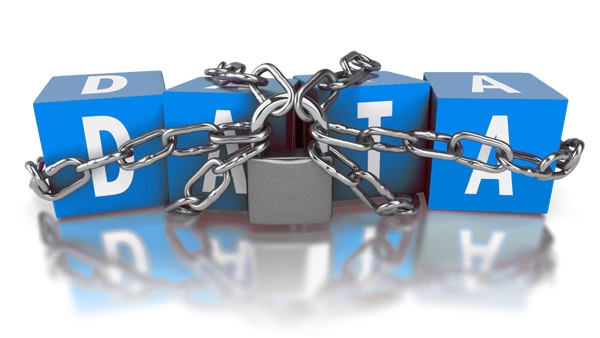Personal Data Trade: Is Your Privacy at Risk?
Hidden Costs and Opportunities within the Shadow Economy
Ever wondered what damage the personal data trade can do to your digital life? Spoiler alert: it’s huge. Stolen identities wreak havoc on individuals, while global organizations scramble to patch their reputations. Is your mouth hanging agape? It should be. The underground market for personal data trade is now worth more than $1 trillion a year.
Yep, trillion with a “T.” In fact, your personal information could already be an active participant in this dark digital roulette game of wheel of fortune, leading to internet security vulnerabilities and privacy exposure. However, the good news is that you still have a chance to protect your data and outsmart these criminals with improved security measures.
Let’s be realistic: we often think, “This won’t happen to me.” However, here’s a reality check—hackers likely already possess your Netflix password in conjunction with your email address, and they’re likely profiting from this information. Indeed, the recent fiasco with 2024 U.S. banking and the so-called Facebook leak of 2019 were not mere headlines; rather, they serve as glaring warnings. Furthermore, this situation is akin to leaving your front door wide open and subsequently wondering why your house is empty.
But here’s the good news: you can flip the script. Make a few smart moves now, and you’ll be able to protect your privacy, avoid some cyber threats, and even make wiser financial decisions because of these vulnerabilities. Sound like a stretch? Stick around-we show how you go from victim to step ahead in the game.
What Awaits You in This Article:
- To begin with, the trade in personal data is enormous in size and scale. In fact, people buy and sell vast amounts of personal information daily, which significantly increases privacy concerns.
- Actual examples, such as the leakage of information from Facebook and the 2024 banking scandal, clearly illustrate the severity of data breaches. As a result, they highlight the urgent need for stronger security measures.
- Moreover, stolen data affects both your finances and mental health, leading to financial loss and increased stress.
- Additionally, key facts show a significant increase in data breaches. As a result, both the frequency and severity of these incidents have risen, highlighting growing security concerns.
- Finally, here are some simple steps to protect your digital life. By using strong passwords, enabling two-factor authentication, and being cautious online, you can significantly enhance your security.
Wondering how this shadow economy could impact your life and your wallet? Therefore, let’s plunge deep into the world of personal data trading. In doing so, we can find out how you can stay steps ahead and protect yourself from potential risks.
The Hidden Economy of the Personal Data Trade
Personal data has become the new gold in the digital age. Indeed, the dark web has become the primary marketplace where hackers and cybercriminals engage in the buying and selling of sensitive information. Furthermore, recent reports indicate:
- Credit Card Data: For as low as $5, it sells.
- Bank Account Details: $25-$200 depending on the account balance.
- Medical Records: The costs of these could run into upwards of $1,000 due to the in-depth information that may be contained therein.
This is an underground economy, indeed, booming with an estimated annual value of $1 trillion. However, what is considered even more alarming than the financial cost of the data itself is the profound impact on victims’ lives.
Eye-Opening Numbers You Need to Know About the Personal Data Trade
- Every 39 seconds, there’s an attack in the world.
- Hence, 61% of the victims of data breach realized financial losses in a matter of weeks.
- Data breach averages $4.45 million in costs, an increase of 15% in the last 3 years.
- In fact, this year, 2024 alone, has seen more than 2 billion records exposed on record, arguably the worst.
- Cybercrime damages are projected to reach $10.5 trillion annually by 2025. This increase highlights the urgent need for stronger cybersecurity measures to prevent such significant financial losses.
These figures are not just numbers, but a wake-up call. Protecting your personal data is no longer optional; it’s a necessity.

Quick Tips to Stay Safe:
- Regularly Update Your Passwords: Additionally, change them regularly—every few months—and ensure each is unique and strong. This simple step can greatly enhance your security.
- Get Alerts: Enable transaction alerts on bank accounts and credit cards.
- Limit Sharing Online: Avoid oversharing personal details on social media.
- Verify Sources: One should always verify the legitimacy of links and/or emails before clicking on them.
- Password Manager: This is a simple way to store and manage all of your passwords securely.
You don’t have to be overwhelmed in protecting yourself. In fact, small steps can make a big difference; therefore, start with these today! Ultimately, it all begins with you in the fight against the personal data trade. the 20-year-old who was robbed of $230 million in cryptocurrencies.
Case Studies: The Real Impact of Breaches
1. Leak of Data on Facebook (2019)
This occurred in one of the most sensationalized breaches. As a result, personal information of 533 million active Facebook users became available, making them targets in the personal data trade. Specifically, records were sold that included the owners’ names, email and phone numbers associated with an account, and even birthdates. Criminals sold this at cheap prices-just $10-$20 per account, for instance-and the victims would be:
- Identity theft leading to financial loss.
- More sensitive information extracted with targeted phishing attacks.
Look at the gigantic amount of compensation.
2. Politicians Targeted (2024)
A 2024 report revealed that 40% of the emails of European politicians were exposed on the dark web, many with accompanying plaintext passwords. Consequently, the cost was high: the integrity of their positions and potential national security risks were compromised.
- These accounts were utilized to perform espionage by cybercriminals.
- Unsuspecting users were tricked by phishing campaigns into divulging classified information.
3. US Banking Scandal, 2024
Some U.S. bank employees have been caught selling customer information, including check images and personal data. The information landed on the dark web with bank account details starting upwards of $50-$150 per account. The aftermath:
- Customers over 65 lost life savings.
- Confidence in the banking system collapsed.
However, with the last 3 changes in bank policy, 3/4 of the problems were corrected.
The True Cost of Internet Insecurity and the Personal Data Trade
These risks run deep in this trade:
- Financial Loss: The victims sometimes have to bear a loss of thousands of dollars by means of fraudulent transactions.
- Psychological Effects: Anxiety and long-term fear can be created in an individual due to the stress caused by identity theft.
- Systemic Risks: The integrity of institutions is compromised, creating distrust in society.
Protecting Yourself from the Personal Data Trade
- Passwords: Use unique, complex passwords for each account.
- Two-Factor Authentication: The process of adding extra security to valuable accounts.
- Avoiding Phishing: Do not click on suspicious links or attachments.
- Monitor your credit: Check your credit reports regularly for anything out of the ordinary.
- Invest in privacy tools: Consider VPNs, encrypted email services, and privacy-focused browsers.
Remember, internet security and privacy are not luxuries—they are necessities. The only thing that will stop you is the Personal Data Trade: The New Pandemic and Its Impact on Our Economy.

Summary: The Price of Privacy in the Era of the Personal Data Trade
How much does the personal data trade affect your online life? The answer: profoundly. Indeed, with the dark web hosting a trillion-dollar economy for stolen information, the stakes couldn’t be higher. Furthermore, recent incidents, such as the Facebook data leak and the 2024 U.S. banking scandal, highlight the dangers and the urgent need for action. However, don’t worry—opportunities for protection and growth exist even in these uncertain times. For instance, simple steps, such as adopting two-factor authentication and monitoring your accounts, can make a world of difference for your internet security and privacy.
Subscribe to Our Newsletter
Want to stay one step ahead in the fight against the personal data trade? Then, subscribe to our newsletter for exclusive insights, practical strategies, and real-world examples. Learn how to secure your digital life and make informed choices to protect what matters most. Don’t let cybercriminals dictate the terms—take charge of your privacy and turn knowledge into power. Indeed, your journey to a safer online future starts here!
Final Thoughts: Take Back Your Privacy
The world of personal data trading can be very overwhelming, but you are not helpless. Through understanding and proactivity, you are well on your way to safeguarding your digital life and being able to outsmart cyber crooks. Your privacy is priceless, and each of these steps builds a more secure tomorrow. Take a step above risks towards securing your future. Let’s make this happen!
Frequently Asked Questions (FAQs)
1.What is the trade of personal data?
Personal data trade refers to the buying and selling of stolen information, including names, emails, passwords, and financial data, via the dark web.
2.How can I protect my internet security and privacy?
Strong, unique passwords, two-factor authentication enabled where possible, and caution with releasing sensitive information.
3.Why is personal data so valuable?
Attackers can exploit personal data for financial gain, identity theft, phishing scams, and even corporate espionage.
4.What to do if your data gets stolen?
Be attentive with your accounts for suspicious activities, report breaches to the relevant organizations, and consider services that protect against identity theft.
Let this be your wake-up call: the personal data trade isn’t slowing down. Equip yourself with knowledge and tools to stay one step ahead. Your privacy is priceless!



